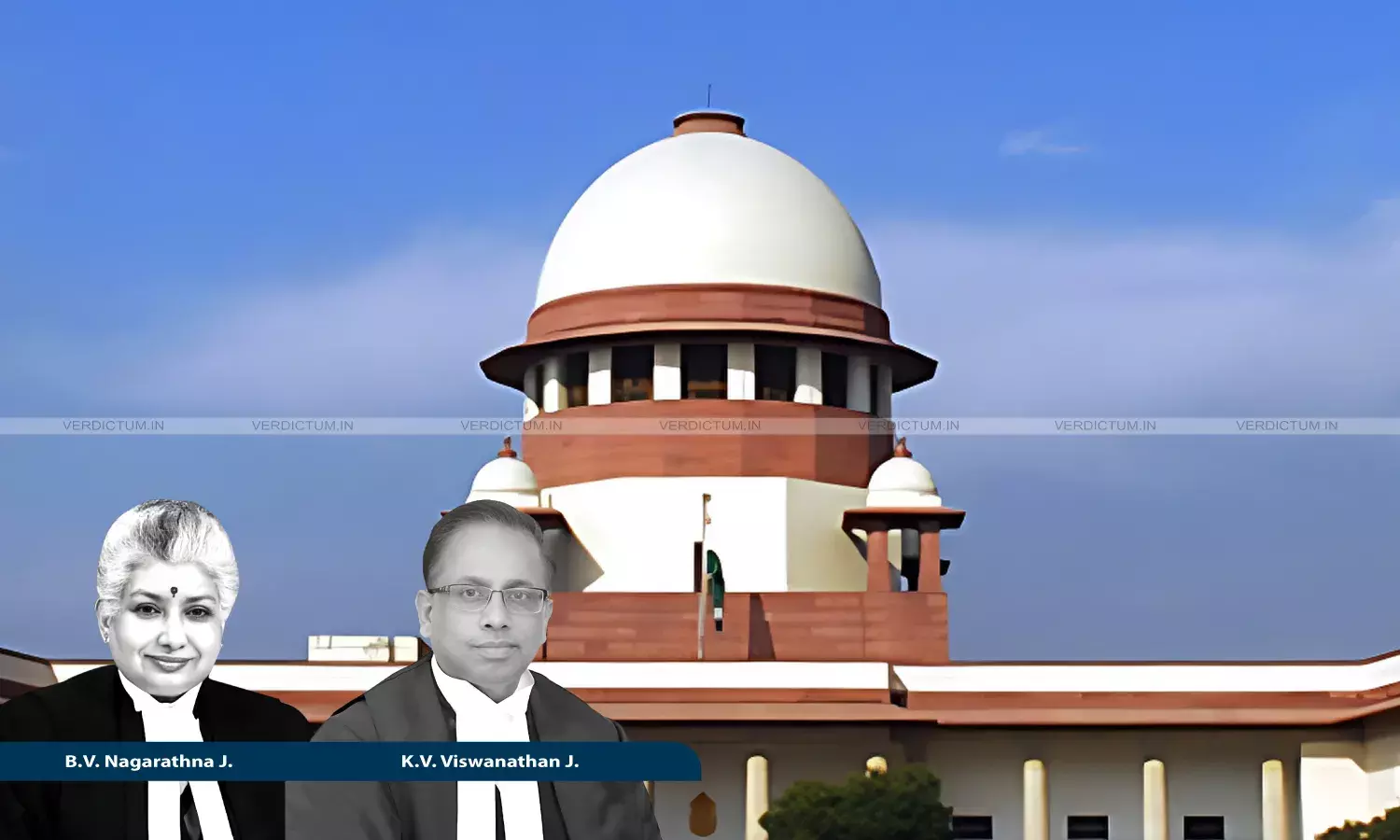Supreme Court Restores Criminal Case Against An Ex-MLA Accused Of Procuring False Caste Certificate To Contest Elections On Reserved Seat
The Apex Court held that allegations of obtaining a false caste certificate to contest an election as a Scheduled Caste candidate warrant a full trial, setting aside the Madhya Pradesh High Court’s order that had prematurely quashed the complaint.

Justice B.V. Nagarathna, Justice K.V. Viswanathan, Supreme Court
The Supreme Court has restored criminal proceedings against a former MLA of the Madhya Pradesh Assembly and others accused of conspiring to obtain a false Scheduled Caste certificate to contest the assembly elections from a reserved constituency.
The Apex Court was hearing appeals challenging the Madhya Pradesh High Court’s order, which had quashed the criminal complaint filed against the accused, including public officials who allegedly aided in the issuance of a forged caste certificate.
A Division Bench comprising Justice B.V. Nagarathna and Justice K.V. Viswanathan, while setting aside the Madhya Pradesh High Court’s orders, observed that “on a reading of the complaint and the unimpeachable documents, it could not be said that no offence under Sections 420, 467, 468 and 471 IPC is prima facie made out.”
Advocate Anuj Bhandari represented the appellants, while Senior Advocate Ruchi Kohli appeared for the respondents.
Background
The matter arose from a complaint filed before the Chief Judicial Magistrate, Guna, alleging that Rajendra Singh Saluja, who belonged to the general category, fraudulently obtained a Scheduled Caste certificate claiming to belong to the Sansi community. The certificate was allegedly used to contest the 2008 Madhya Pradesh Assembly election from the Guna (SC reserved) constituency.
The complaint accused several individuals, including Singh’s father, Amrik Singh and local officials, of conspiracy and forgery in the issuance of the caste certificate. It was alleged that affidavits, panchnamas, and other supporting documents were fabricated to establish the Scheduled Caste status falsely.
Following an inquiry, the Caste Certificate Scrutiny Committee found that Singh was not a resident of Madhya Pradesh before 1950 and had obtained the certificate in violation of the prescribed procedure. The Committee cancelled and forfeited the certificate, a decision that was later upheld by the Madhya Pradesh High Court and the Supreme Court.
Despite these findings, the High Court quashed the criminal complaint against Singh and others, holding that their conduct could be attributed to “legal illiteracy” and that no evidence suggested manipulation or intent to defraud.
Court’s Observation
The Supreme Court, at the outset, criticised the High Court for effectively conducting a “mini-trial” at the stage of considering the quash petitions. It held that the High Court had “virtually conducted a dress rehearsal of the trial” and made conjectural findings about legal illiteracy and lack of intent without the benefit of evidence.
Rejecting the reasoning that ignorance of law could justify the accused’s conduct, the Apex Court observed that the findings were “patently erroneous” and that “the defence of the accused could not be looked into at the stage of considering the quash petition.”
The Bench noted that the complaint specifically alleged conspiracy, forgery, and false certification by multiple accused, including local officials, who allegedly helped in fabricating the caste certificate. “It could not be said that on a demurrer the complaint can be quashed against the said four accused,” the Bench stated, emphasising that the matter should proceed to trial.
Referring to Kumari Madhuri Patil v. Addl. Commissioner, Tribal Development (1994), the Court reiterated that when a scrutiny committee finds a caste certificate to be false, the beneficiary and others involved must be prosecuted for making a false claim.
Conclusion
Setting aside the Madhya Pradesh High Court’s order, the Supreme Court restored the Criminal Complaint before the Chief Judicial Magistrate, Guna, and directed that the trial proceed expeditiously, preferably within one year.
The Bench clarified that the trial should continue “uninfluenced by the findings of the High Court or this Court in the present proceedings.”
Cause Title: Komal Prasad Shakya v. Rajendra Singh & Others
Appearances:
Appellant: Advocates Anuj Bhandari, Gaurav Jain.
Respondents: Senior Advocate Ruchi Kohli, Advocate Rajesh Singh AOR, and others.


